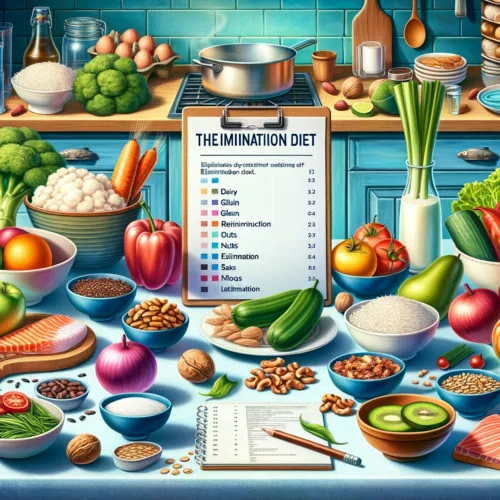As an expert in dietetics and nutrition, I’ve noticed a significant shift in the food industry over the past few years. There’s an increasing interest in vegan and vegetarian products, which has become not just a fashion trend, but a conscious choice for many people. This trend is driven not only by a desire for a healthy lifestyle, but also by concerns about environmental impact. People are becoming more informed about what and how they eat, leading to the emergence of new products in the market. One of the most discussed innovations of 2024 is undoubtedly the appearance of plant-based fish alternatives. These products not only mimic the taste and texture of fish but also offer a healthy, nutrient-rich alternative. Let’s explore why plant-based fish alternatives are becoming a key trend this year.
Why Plant-Based Fish Alternatives Are Gaining Popularity
The reasons for the growing demand for plant-based fish alternatives are numerous and significant. Firstly, environmental considerations play a key role. Industrial fishing exerts considerable pressure on marine ecosystems, leading to the depletion of some species and the disruption of marine food chains. Plant-based alternatives provide an environmentally sustainable option, reducing the burden on marine resources and aiding in the conservation of biodiversity.
The second important reason is health concerns. Modern consumers are increasingly aware of the benefits of a plant-based diet and are eager to incorporate it into their diet. Plant-based fish alternatives are often enriched with essential nutrients like omega-3 fatty acids, without the unwanted presence of mercury and other pollutants that can be found in seafood.
Finally, improvements in the technology of producing plant-based products have allowed the creation of alternatives that are not only nutritious but also tasty, mimicking the texture and flavor of real fish. This expands the appeal of such products to a broad audience, including not just vegans and vegetarians but also those who are simply looking for healthy and sustainable alternatives to traditional food products.
Review of Plant-Based Fish Alternatives
Plant-based fish alternatives astonish with their variety and creativity in ingredient use. Here are some examples that deserve special attention:
1. Carrot as a Salmon Alternative: Marinated or baked carrots remarkably resemble the texture and taste of salmon. A special method of preparing carrots allows them to absorb flavors and achieve a consistency that recreates the sensation of real fish.
2. Mushrooms as Seafood: Certain types of mushrooms, such as shiitake or oyster mushrooms, mimic fish meat due to their texture. Mushrooms easily absorb the tastes and aromas of marinades and spices, making them an excellent base for vegan dishes with a marine accent.
3. Seaweeds as a Source of Marine Flavor: Seaweeds have long been used in vegetarian cuisine for their ability to give dishes a marine flavor. They are nutrient-rich and can serve as a basis for creating vegan fish alternatives, effectively mimicking the taste of sea algae and seafood.
4. Soy Products for Imitating Fish Fillet: Soy protein is a versatile ingredient that can be used to create alternatives to fish fillet. Thanks to their flexible texture, soy products can be adapted to mimic various types of fish, from tuna to white fish, and are an excellent protein source.
Each of these alternatives has its unique qualities and preparation methods, allowing not only the creation of healthy and sustainable dishes but also the opening of new gastronomic horizons. The variety of flavors and textures available in plant-based fish alternatives provides a rich palette of choices for culinary enthusiasts of all levels.
Advantages of Plant-Based Fish Alternatives
Plant-based fish alternatives are not only a tasty option but also offer several significant benefits:
1. Nutritional Value: Many plant-based fish alternatives are rich in protein, vitamins, and minerals. For example, seaweeds are an excellent source of iodine and omega-3 fatty acids, while carrots and mushrooms contain important antioxidants and B vitamins. These products can also be fortified with additional nutrients to meet specific dietary needs.
2. Cardiovascular Health: Plant-based products generally contain less saturated fat and cholesterol compared to animal protein sources. Studies show that a plant-based diet can contribute to improved heart health, reduced cholesterol levels, and prevention of cardiovascular diseases.
3. Environmental Sustainability: Plant-based fish alternatives have a lower environmental impact compared to traditional fishing and aquaculture. They help reduce dependence on marine resources and contribute to the preservation of biodiversity in the oceans.
4. Accessibility and Versatility: Plant-based alternatives can be an accessible and convenient choice for many people. They are suitable for those with seafood allergies, vegetarians, vegans, and anyone who avoids fish for various reasons.
Thus, plant-based fish alternatives not only provide delicious and innovative options for culinary experiments but also make a significant contribution to the health and sustainability of our diet. This makes them an attractive choice for a wide range of consumers looking for healthier and more mindful eating options.
Innovations and the Future of the Plant-Based Fish Alternatives Market
The market for plant-based fish alternatives is experiencing a surge in innovation, particularly in the fields of technology and biotechnology. These developments are not only enhancing the quality and diversity of products but are also opening new horizons for the future of the food industry:
1. Advanced Texturizing Methods: One of the key challenges in creating plant-based fish alternatives is replicating the unique texture of fish meat. Innovative texturizing methods, such as 3D food printing and the use of special protein structures, allow achieving the necessary consistency, making plant-based alternatives more appealing to consumers.
2. Use of Biotechnologies: Biotechnologies play a crucial role in the development of plant-based fish alternatives. The application of fermentation, genetic engineering, and cell culture enables the creation of products rich in proteins and other nutrients, while accurately mimicking the taste and texture of fish.
3. Enhanced Nutritional Value: Scientists can enrich plant-based alternatives with essential nutrients, such as omega-3 fatty acids, traditionally associated with fish, using biotechnologies. This makes plant-based alternatives not only tasty but also a nutritious choice.
4. Sustainable Production: New technologies are also aimed at reducing the environmental impact of food production. From sustainable resource use to waste reduction, these innovations help make the food industry more environmentally friendly.
5. Product Personalization: With the advancement of technologies, the market is seeing the possibility of creating personalized food products that cater to individual dietary preferences and nutritional needs.
Overall, thanks to technological innovations, the market for plant-based fish alternatives promises to become not only more diverse and delicious but also to contribute to sustainable and healthy nutrition. These developments will inevitably shape the future of the food industry, making it more adaptive to the needs and expectations of modern consumers.
Impact on the Food Industry and Consumers
Plant-based fish alternatives significantly impact both the food industry and consumer preferences:
The emergence of plant-based fish alternatives opens new market segments in the food industry. This stimulates companies to invest in research and development and experiment with new ingredients and technologies. Gradually, this leads to an expansion of the range of products offered to consumers.
With increasing awareness of the impact of diet on health and the environment, consumers are more inclined to choose sustainable and healthy products. Plant-based fish alternatives meet these needs, offering environmentally friendly and health-beneficial options, changing consumer habits and preferences.
To meet the growing demand for plant-based fish alternatives, companies are implementing innovative approaches such as advanced processing and packaging technologies and developing improved product formulas. This leads to an increase in the overall quality of products and the development of the food industry.
Plant-based fish alternatives contribute to a shift towards more sustainable food production methods. Reducing reliance on marine resources and minimizing the environmental impact of food production become key factors in the industry’s development.
Plant-based fish alternatives also contribute to gastronomy’s evolution, offering new flavors and textures. This inspires chefs and cooks to create innovative dishes, expanding culinary boundaries and influencing popular culinary trends.
Overall, plant-based fish alternatives significantly contribute to diversifying the food industry and promoting a more sustainable and healthy lifestyle for consumers. These products reflect a growing aspiration to balance satisfying taste preferences with supporting a sustainable future.
Conclusion
In summary, plant-based fish alternatives represent a significant and important trend in the food industry. They not only meet the growing demand for sustainable and healthy food products but also offer innovative culinary solutions that can radically change our perception of nutrition.
In the future, further growth and development of this segment can be expected. With improvements in technology and increased investment in research and development, plant-based fish alternatives will become increasingly sophisticated in terms of taste, texture, and nutritional value. This, in turn, will attract even more consumers, including those who had not previously considered vegetarian or vegan alternatives.
Additionally, the growth of this segment will promote the development of more sustainable food systems, which is crucial in the context of environmental challenges and the need to protect marine resources. Plant-based fish alternatives can play a key role in reducing the environmental impact of the food industry and supporting the healthy nutrition of the population.
Ultimately, the shift towards plant-based fish alternatives reflects a broader societal trend towards conscious dietary choices. This is not just a fashion or a temporary phenomenon but part of a global movement towards a more sustainable, healthy, and responsible lifestyle.













